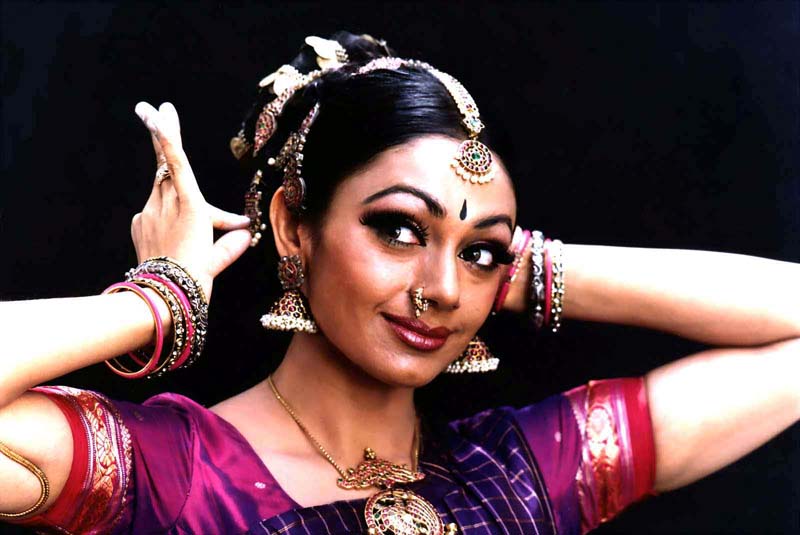|
Bharata Natyam
Bharata Natyam is one of the oldest form of dance. This form of dance is based on the ancient text on
dance. Bharata stands for BHAva(mood), RAga(music), and TAla(rhythm), while Natyam stands for Nritta.
Movement, mime and music are given equal importance in Bharata Natyam. A Bharata Natyam performance is
rendered by a solo artist, or a duo, or as a group. Bharata Natyam is poetry in motion. A Bharata Natyam performance involves Alarippu-the invocation of God, Jathi Swaram-a note combination,
Shabdam-a combination of notes and lyrics, Varnam-a combination of pure dance and abhinaya, and Thillana-the
finale. The costumes used in a performance are elaborate. The dancers dress in specially designed colorful silk
costumes and wear head ornaments, necklaces and bangles. Flowers are wound around their long plait.
A Bharata Natyam performance involves Alarippu-the invocation of God, Jathi Swaram-a note combination,
Shabdam-a combination of notes and lyrics, Varnam-a combination of pure dance and abhinaya, and Thillana-the
finale. The costumes used in a performance are elaborate. The dancers dress in specially designed colorful silk
costumes and wear head ornaments, necklaces and bangles. Flowers are wound around their long plait.
Originally, this art was known as sadi or dasiattam, and was performed in Hindu temples by female
dancers called devadasis, or servants of God. Performances were a part of daily rituals and religious or
festive occasions, where dance was considered to be an offering to the deities. Eventually, this dance form
made its way into the royal courts, and in the 18th and 19th century Thanjavur courts, Bharata Natyam
developed into its present form. A period of decline in popularity was followed by a revival of Bharata
Natyam in the 1920's and 30's, after which it found its place on the modern stage.
Bharata Natyam is known for its rhythmic, vigorous footwork, crisp movements, sculpturesque poses and
combining the energy of its Nritta (rhythmic movements) with the emotion of its Nritya (expressive movements).
|